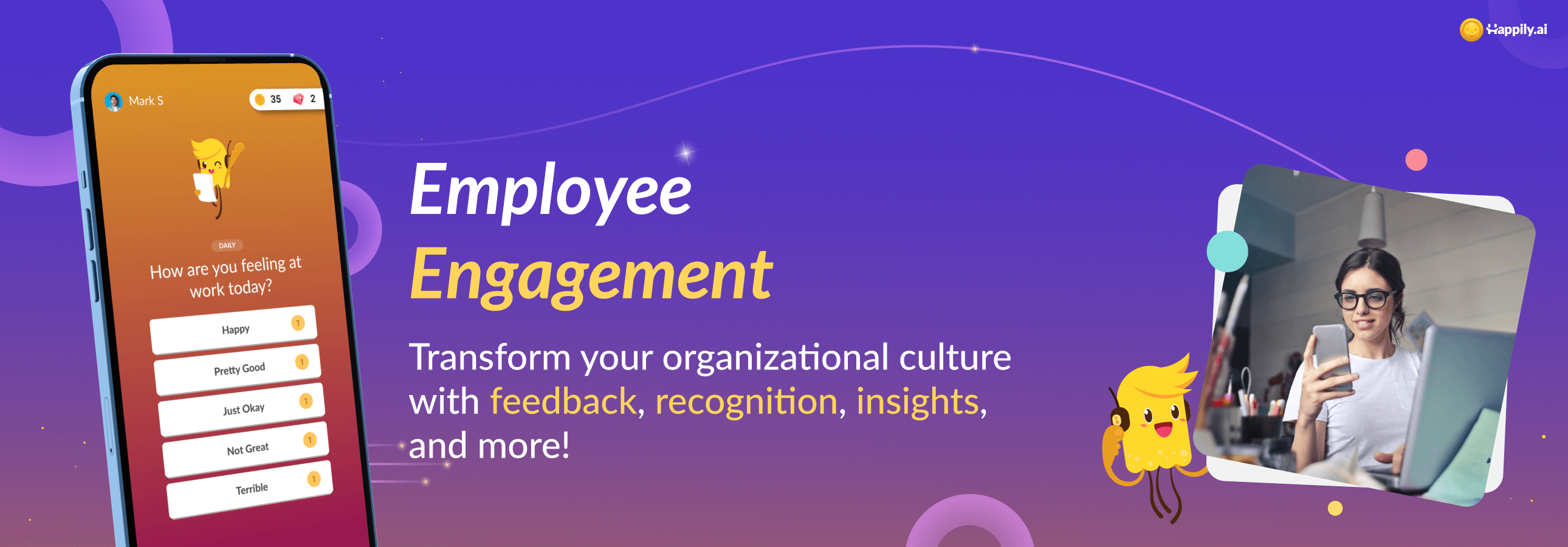After The Great Resignation, organizations find another post-pandemic phenomenon to worry about: Quiet Quitting. "Quiet Quitting" has gone viral on the internet and has been defined and redefined as it echoes across social media and news outlets. One thing is certain, quiet quitters are not leaving their job. Instead, they are rejecting the hustle culture of going above and beyond at work, as expressed by this TikTok user.
Signs of quiet quitting include withdrawing from the team, limiting communication, interacting to only what is required, and staying silent rather than sharing feedback, said Joe Grasso, senior director of workforce transformation at Lyra Health.
Overall, Quiet Quitting goes beyond set work-life boundaries. Quiet quitters feel disconnected from the team and refuse to invest additional time and energy in organization, resulting in lower productivity. As a result, Quiet Quitting is an old concept in the new packaging; employee disengagement.
How should company leaders respond?
Here are what leaders need to know:
- Triggers of Quiet Quitting
- How to prevent and mitigate Quiet Quitting in your workplace
Triggers of Quiet Quitting
Each individual has their own reason for participating in Quiet Quitting. There will always be those who seek a chance/excuse to not contribute. However, engaged high contributors can turn out to be quiet quitters if they consistently feel undervalued and overlooked. The leading causes of quiet quitting are being overworked and underpaid, and lacking in recognition and communication.
1. Overwork and underpayment
Under the full effect of the great resignation an average of 4 millions workers left their job each month. Those who stayed end up with a heavy workload. And, if workloads are unmanageable for long periods of time, burnout is inevitable.
Due to market uncertainties during this period, employees with added responsibilities get dismissed when asking for compensation adjustments. They feel undervalued and frustrated. Pulling away from work is their solution.
2. Lack of recognition
"Hard work is rewarded with more work" a comment on social media said. When high achievers go the extra mile for the organization, and their efforts remain unnoticed, these high-performing individuals feel demotivated and disengaged.
3. Lack of communication
Poor communication often leads to higher anxiety at work. When people do not feel comfortable sharing feedback with their team, they do not feel their voice is heard. A work environment that does not support effective communication will always cause unneeded friction in the workplace.
These triggers cause employees to experience undue stress, fatigue, and eventually burnout. Quiet Quitting becomes a quick and justifiable measure to protect their mental health and well-being. And that’s not all. Disengaged employees are a source of frustration for others who have to pick up the slack or feel shut out, and affect organization by lowering productivity. Everyone loses.
How to mitigate Quiet Quitting in your workplace
"Quiet quitting" isn't laziness. Doing the bare minimum is a common response to bullshit jobs, abusive bosses, and low pay.
— Adam Grant (@AdamMGrant) August 26, 2022
When they don't feel cared about, people eventually stop caring.
If you want them to go the extra mile, start with meaningful work, respect, and fair pay.
The consensus is that Quiet Quitting is a common response when people do not feel their company cares about them.
To show you care, here are three effective management tools:
1. Regular manager and skip-level manager one-on-one meetings
Regular check-ups help leaders and managers better understand how their direct reports feel about workloads and whether they can balance work with other aspects of their lives. These sessions provide an opportunity to help prioritize tasks and address critical issues in a timely manner. Further, when they feel underpaid, you may find a solution that benefits both company and your employees through this meeting.
2. Pulse survey
A pulse survey is a multifaceted tool that helps leaders, managers, and HR collect timely feedback on well-being, satisfaction, and an array of other organizational health metrics. Having a regular feedback tool mechanism to employees suggests that their voice matters. Insights from pulse surveys can identify high anxiety and stress-levels to enable proactive people management.
Warning: this only works if management is attentive and responsive to employee feedback.
3. Recognition programs
Studies have shown that recognition increases employee happiness and improves engagement. Expressing gratitude for their efforts, time, and creativity gives employees the motivation they deserve for going above and beyond. Moreover, when people receive recognition, they tend to share these positive feelings with their peers. (See: Recognition is the Gift that Keeps on Giving) Giving regular recognition and constructive employee feedback helps reinforce positive behaviors and foster a peer feedback culture at your workplace.
Conclusion
Quiet Quitting sounds worrisome, but it doesn’t have to be for companies who regularly engage in feedback and recognition with their employees. Introducing tools such as regular one-on-ones, pulse surveys, and recognition programs are necessary actions that show the company cares. And insights gained can help companies proactively manage employee workload, well-being, and satisfaction.
All in all, Quiet Quitting can be prevented by fostering a workplace where employees feel comfortable asking for help and being vulnerable without fear of retribution.
How Happily.ai helps prevent Quiet Quitting and Disengagement
Happily.ai helps leaders improve employee engagement with real-time insights and nudges that provide timely interventions. Have a pulse on their teams and quickly identify those stressed or experiencing low well-being. There are no shortcuts to creating a healthy and happy workplace, but we help you put the right pieces in place (within days, not months). We invite you to check out Happily.ai to see if we can help you drive positive behavioral change in your workplace. Make employee engagement a top priority today and learn more about Happily.ai!

Resources:
https://www.bbc.com/worklife/article/20220825-why-quiet-quitting-is-nothing-new
https://blog.happily.ai/everything-you-need-to-know-about-pulse-surveys/
https://blog.happily.ai/recognition-is-the-gift-that-keeps-on-giving/









